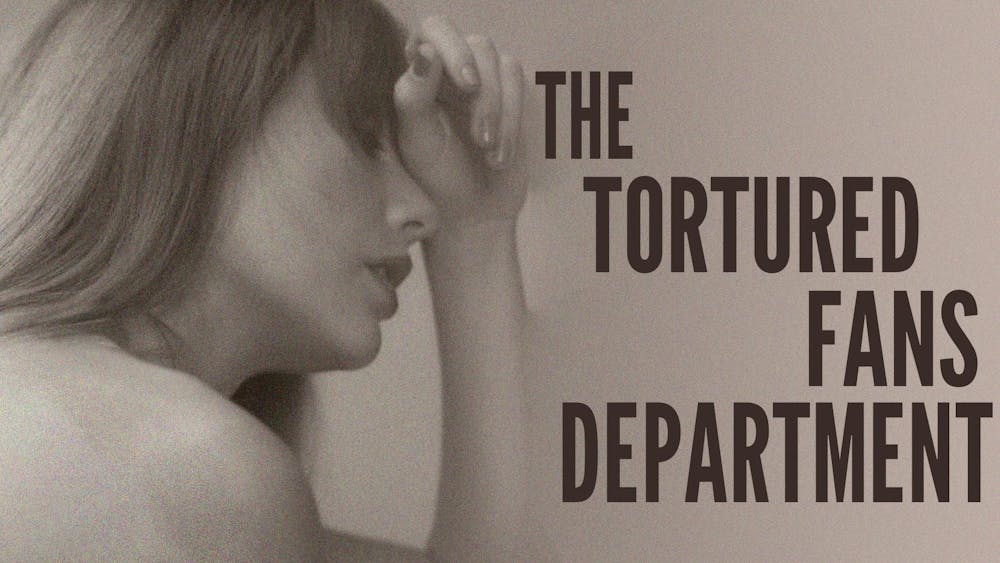Mary Fishman is an alumna of Notre Dame who recently released "Band of Sisters," a film about a variety of Catholic nuns in America and how the sisters strive for social justice. The Observer was able to speak with Fishman before the screening of her film in the DeBartolo Performing Arts Center on Thursday. Here are some excerpts from their conversation:
What did you study while at Notre Dame?

I studied architecture. I was an archie, and I had a second major in French.
That's incredible, how did you then get into filmmaking?
Well if Notre Dame had had a big film program the way it does now, that's probably what I would've majored in at that time, because it was something I kind of always - well not always - but since high school I got the bug for movies.
But anyway, I ended up majoring in architecture, and I really loved that and worked at that for 20 years.
Architecture is kind of an up-and-down profession, especially when you're young. I finally had a job where I wasn't worried about losing it and I was probably comfortable enough in my profession when I thought, 'Maybe I can start thinking about becoming a filmmaker.'
I started taking some classes at night. I took them at Columbia College and I ended up taking some at this co-op called Chicago Filmmakers.

The first time I was actually holding a piece of film and did a few edits - where you tape it together and you hand crank it through this thing - something just came over me that said, 'This is it.' I had no doubt that this is what I want to do.
How did you come across the topic of your film and decide to make it the subject of your film?
I was looking for a subject, and my goal for any kind of film would be something that would have a deeper message. In general, I want to do things that are uplifting and something that might contribute to the common good.
My sister gave me this book called "Aging with Grace," which is about Catholic sisters who are involved in an Alzheimer's study. The book was about this study, but it also brought the sisters alive as real people. I had been educated by sisters in grammar school and high school, but I never really had thought of them as having lives apart from just being the teacher in the classroom.
I just thought [the book] was so inspirational, and I started researching the history of nuns in this country and was shocked at how much they've done to build this country in so many ways. I thought I'd like to do something to change the stereotype of sisters, in general and in popular culture.
I felt that their story was a model for the rest of us. It's not just sisters that can be doing this kind of work, but they've found a way to really do it as a community and to support each other while they're doing this great social justice work. I thought there were a lot of things [about the sisters] that many other people can learn from.
You had such a wide variety of individuals in this film - how did you choose whom to highlight?
Some of it was happenstance or luck as far, as my meeting certain people or living near certain people.
For example, Pat and Joann, who are the main characters, live three blocks from me and we met on our parish Peace and Justice committee. And I met them at a point when they were just at the beginning of their journey.
The other people, like Nancy Sylvester, is a sister of the Monroe Immaculate Heart of Mary. When I told [a friend of mine] that I was focusing on social justice then they said, 'well you have to talk to Nancy.'
Nancy brought together people who became advisors to me, and we had some conference calls and they helped me figure out about the scope of the film and suggested other [possible contacts].
When you're trying to decide about the individual stories, it's what fits in with everything else that we have, and what we have the best footage of. It's a balancing thing - trying to have people in [the film] that are interesting in [and of] themselves and in the combination of women [in the film.]
I've heard comments from the nuns themselves, and from people of other faiths even, that they really see themselves in these women - they recognize them. And not just that they recognize them as Catholic sisters, but they also recognize something in [the sisters] that's also in their own faith tradition or in their life experience. I think we found people that really serve the topic well.
You chose controversial political themes in a lot of ways (immigration reform and labor issues) - were you surprised at how involved sisters were in these issues or is this something you knew going into it?
When I first started doing research I was surprised. I was stunned really when I first heard of Theresa Kane [addressing] the Pope in 1979 [representing the Leadership Conference of Women Religious (LCWR)]. I just can't even imagine anyone doing that today, and she did it extremely well. That was a big surprise to me, but once I started reading the books that sisters were writing in the '70s and '80s and still are [writing] about who they are, I knew what I was going to find.
It was a surprise to me, since I had contact with sisters since high school, but in high school I really wasn't aware of what they were doing.
This film is coming out at a very opportune moment. Did you begin your research before the papal investigation of LCWR?
Oh no, I began it well before. I started really heavily researching and applying for funding in 2004.
That's unbelievable - So you just came to this at the perfect moment?
Yeah, I guess it was just meant to be. But even then there was controversy and conflict with the Vatican. It's been ongoing since the '60s so this, I feel, is just the latest in a long unhappy chain of events where the Vatican just doesn't seem to understand or want to support what the Catholic Sisters are doing and I think that's a real shame.
What do you think we, as Notre Dame students, should take away from this film?
I think that Notre Dame is kind of the perfect place for Catholics to come together and be able to talk about the issues in the film. I think that Notre Dame is kind of unique ... It seems to me that Notre Dame is unique in that it runs the gamut from people who are really involved in social justice and quite liberal to people who are more conservative ... people who are more focused on the official doctrine of the church and more in line with the last two popes and their teachings.
I think at Notre Dame, people manage to be civil about [religious topics] and listen to each other so I would hope that the film will give students a chance to discuss some of those issues.
I think what we tried to do with the film was not say what people should think or believe, but just to give them something to think about.
"Band of Sisters" is playing Thursday, February 21 at DPAC at 7:00 p.m. Mary Fishman will be present for a Q&A session after the screening.
Contact Courtney Cox at ccox3@nd.edu












